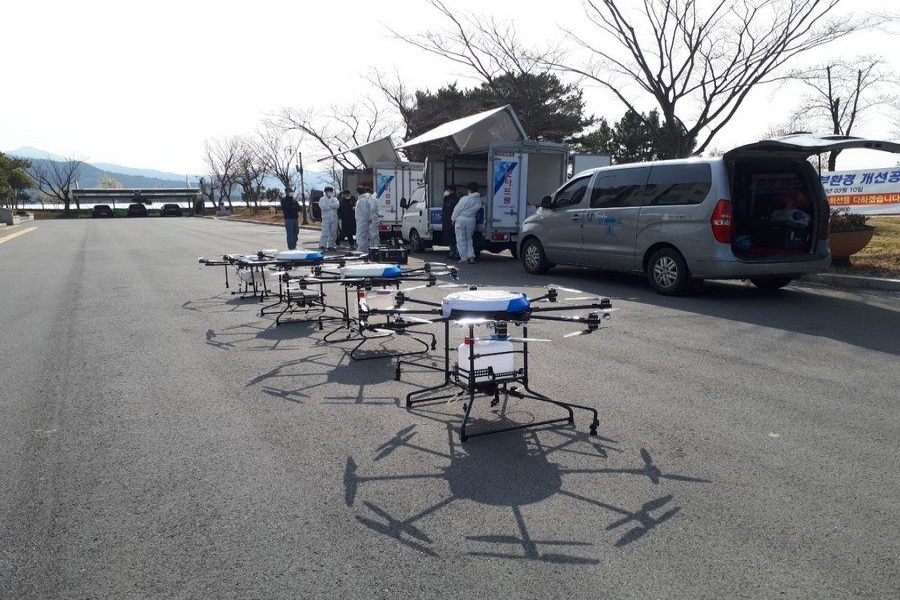
Published :
Updated :

Countries around the world are beefing up control and prevention measures to contain further spread of the novel coronavirus.
World Health Organisation (WHO) Director-General Tedros Adhanom Ghebreyesus said Friday in Geneva that Europe has now become the epicentre of the COVID-19 pandemic.
During an address on Saturday evening, Spanish Prime Minister Pedro Sanchez confirmed the "State of Alarm" in Spain, announcing the lockdown of its 46 million citizens for 15 days from 8 a.m. (0700 GMT) on Monday morning.
All shops (except those selling "essential goods"), bars, restaurants, cinemas and schools will be closed and travel restrictions imposed on the whole population, in an attempt to combat "a worldwide pandemic, and a social and health crisis," he said.
This is only the second time such a situation has been decreed in Spain, with the first ordered during a wildcat strike by Spanish air-traffic controllers in December 2010.
Just three hours after Sanchez approved the imposition of a "State of Alarm" for Spain, the Prime Minister's Office said Begona Gomez, the wife of the Spanish prime minister, has tested positive for the coronavirus.
The number of confirmed cases in Spain has spiraled to over 6,300, with an increase of around 1,500 in just 24 hours, according to the Ministry of Health, Consumer Affairs and Social Welfare.
In Italy, the caseload has reached 17,750 as of Saturday, the Italian authorities said.
The figure, which did not include recoveries or fatalities, marked an increase of 2,795 cases over the previous day. Some 527 people were dismissed in the day, bringing the total to 1,966, while the death toll also grew by 175 cases to 1,441, according to the Civil Protection Department that is coordinating the national emergency response.
According to the department's data, a total of 9,059 cases have been reported in the hardest hit northern Lombardy region, whose capital is Milan.
Italian Prime Minister Giuseppe Conte on Wednesday evening announced new measures to stem the spread of the coronavirus, including the closure of all retailers and businesses except providers of basic necessities, such as supermarkets, pharmacies, public transportation, post offices, and banks.
The measures came after the government placed the entire country on lockdown beginning on March 10, which restricted the movement of the country's some 60 million residents.
US President Donald Trump, whose test turned out late Saturday to be negative for the novel coronavirus, announced earlier in the day that the US travel ban on Europe is extending to the United Kingdom and Ireland, which will be effective Monday midnight eastern standard time (0400 GMT Tuesday).
The travel ban Washington imposes on 26 European nations has been effective since Friday midnight.
Trump has declared a national emergency on Friday to open up 50 billion US dollars in federal aid to help combat the spread of COVID-19 across the country.
The United States has reported 2,726 cases as of Saturday night with at least 54 deaths, according to the centre for Systems Science and Engineering at Johns Hopkins University.
Iran, the worst-hit country by the epidemic in the Middle East, announced Saturday that a total of 12,729 people have been tested positive for the novel coronavirus since its outbreak, some 4,339 patients have recovered from the disease, while another 611 have died.
Iranian authorities are considering an imposition of partial lockdown on 11 provinces in the country to fight against the spread of novel coronavirus, state Press TV reported on Saturday.
Iran's army announced on Friday that it would begin to empty shops, streets and roads nationwide within 24 hours as part of measures to fight the virus.
According to Johns Hopkins University's tally, up to 8pm Saturday Eastern Standard Time (0000 GMT Sunday), the number of confirmed COVID-19 cases has exceeded 150,000 globally.


 For all latest news, follow The Financial Express Google News channel.
For all latest news, follow The Financial Express Google News channel.